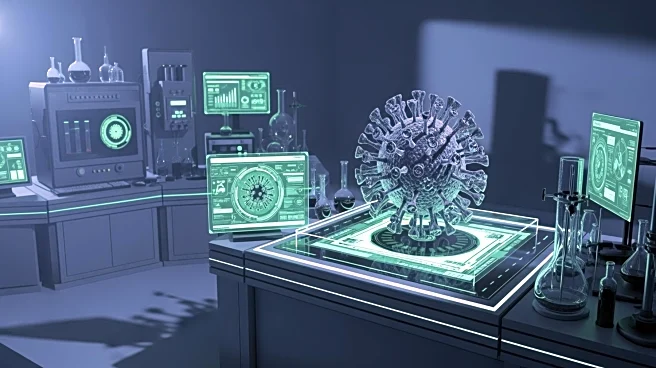What's Happening?
A team of scientists from Stanford University has published a paper detailing their use of artificial intelligence to design new viruses capable of killing bacteria. This development, described as a significant scientific breakthrough, involves the creation
of phages, which are viruses that infect and kill bacteria. The AI model, named 'Evo,' was trained on a vast dataset of DNA sequences, allowing it to design entire genomes for these viruses. The research has sparked a debate over the implications of AI in biology, with some experts expressing concerns about the ethical and safety aspects of creating new life forms using AI technology.
Why It's Important?
The use of AI to design viruses represents a major advancement in biotechnology, with potential applications in medicine, such as developing new treatments for drug-resistant infections. However, it also raises ethical and safety concerns, as the ability to create new life forms could lead to unintended consequences, including the creation of harmful pathogens. The debate highlights the need for careful consideration of the risks and benefits of using AI in biological research, as well as the importance of establishing guidelines to ensure the responsible use of this technology.
What's Next?
The paper has not yet been peer-reviewed, and further research is needed to fully understand the capabilities and limitations of AI-designed viruses. Scientists and bioethicists are likely to continue discussing the implications of this technology, with potential regulatory measures being considered to address safety concerns. The development of AI in biology may lead to new collaborations between researchers and ethicists to establish guidelines for the responsible use of AI in creating new life forms.
Beyond the Headlines
The intersection of AI and biology could redefine our understanding of life and evolution, challenging traditional notions of what it means to be alive. This development may also influence future research in synthetic biology, potentially leading to new innovations in medicine and environmental science. The ethical considerations surrounding AI-designed life forms could prompt broader discussions about the role of technology in shaping the future of humanity.














